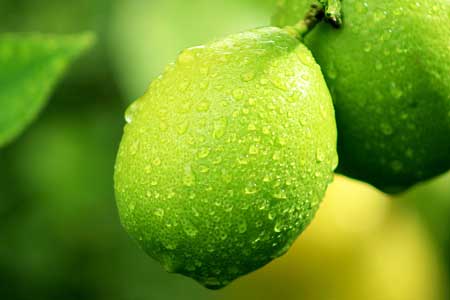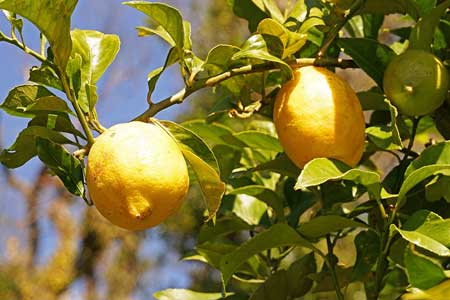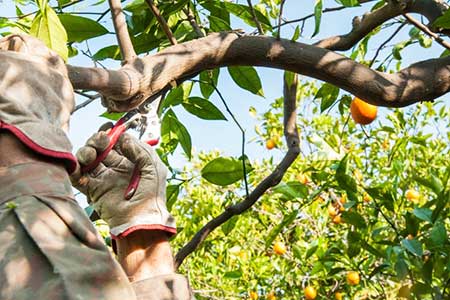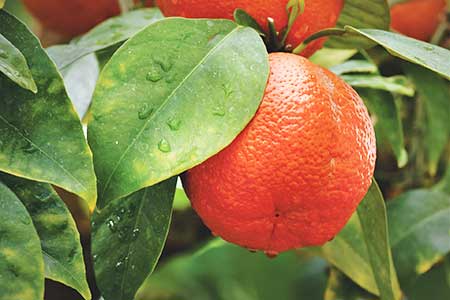Citrus Fruit
How to grow
Once upon a time fruit trees could be found in every New Zealand garden but with today’s smaller gardens it is more difficult to find space. With careful selection, however, and knowing where to plant these trees can be accommodated and can thrive.
Citrus don’t actually take up a lot of space and, without doubt, they are the most popular fruit grown in home gardens. And no wonder, considering the usefulness of the fruit, the attractiveness of the tree and the ease of growing them.
At a Glance
- Plant in a warm, sunny position
- Need a free-draining soil
- Require lots of food
- Give deep watering in Summer
Citrus have always been popular. They are vitamin rich, great tasting, can be picked progressively over quite a long time and are relatively easy to grow.
Early Mandarins begin to ripen from early June with oranges, grapefruit and lemons holding out until November. This winter/early spring fruiting makes citrus so valuable when other fruit are more expensive. 
They are also very attractive trees with their glossy green leaves, fragrant blossom in spring and coloured fruit in winter.
WHERE TO PLANT
Citrus will grow in warm or mild climates and, providing frosts are not too severe, they will tolerate cold conditions too. If you live in a hot inland region, give them lots of water and there's no climatic reason why they shouldn't thrive here too.
Citrus trees require a sunny position, protected from cold winds and prefer a sandy or loam soil. They will tolerate clay soils providing they are planted on a raised area with lots of compost mixed into the soil.
In cold climates citrus can be grown in pots in glasshouses and conservatories - for added winter protection, use a frost cloth.
WHEN TO PLANT
Citrus trees are available most of the year and can be planted anytime, provided they are watered regularly in summer.
AFTER CARE...
Feeding
Citrus are big feeders! A moderately sized mature tree requires at least 500g of General Garden or Citrus & Fruit Tree Fertiliser each year. Two thirds of this should be applied in late winter and one third in January. Pelletised Sheep Manure is a good alternative.
Do not cultivate under citrus trees though as their feeding roots are relatively close to the surface.
For citrus grown in pots, use Burnett’s Citrus Food.
Watering
Citrus must be watered regularly through spring and summer. Irregular watering can cause fruit drop and fruit splitting, not to mention reduced yield and dry fruit.
Mulching
A layer of mulch spread over the surface under citrus trees will conserve moisture and improve performance. Take care, however, to keep mulch away from the base of the tree trunk.
Pests and Diseases
Citrus trees are relatively free of insect pests but occasionally can be attacked by scale insects, aphids and mites. Yates Mavrik controls all these pests.
Sooty moulds are fungi which cover plant leaves, stems and twigs in a black sticky substance. In almost all cases, the sooty mould is secondary to an infestation of insects that secrete honeydew. These insects include aphids, scale, mealybugs and white flies.

- Treating the insects will remove the source of the honeydew and dry up the sooty mould, which will eventually fall or wash off the foliage.
- The mould itself does not feed on the plant, however, as it covers the leaf surface, it is blocking light and reducing photosynthesis, essential for plant growth. Yates Confidor or Conqueror Oil are good solutions for controlling scale.
Verrucossis, a fungal disease which sometimes attacks lemons causing rough fruit, is controlled by spraying with Yates Champ Copper.
PRUNING
Citrus tend to be self shaping and generally need little pruning.
- Mandarin varieties can become a little thick and will benefit from some thinning out.
- Lemon trees can sometimes require pruning back to make them more compact and easy to manage. Prune in the first or second year to train it to how you want it to grow. Make sure that any shoots below the graft are removed. These are easily identified as they have different foliage. Citrus will fruit on the new season’s growth.
- Never prune more than 1/3 of the tree in a year and trees should be kept to around 8-10 feet high to make them easier to care for and harvest.
MAKING YOUR SELECTION

Lemons
- Meyer variety is most popular because of its reliable high yield over an eight month picking period. The fruit is of medium size and sweeter than other varieties.
- Lisbon and Eureka are more acid.
- Yen Ben is an improved selection of Lisbon for those wanting a ‘real’ lemon for cooking.
- Lemonade is a very sweet lemon, tasting like delicious lemonade, and deserves its increasing popularity. Ripens during spring.
Grapefruit
- Golden Special is the traditional grapefruit with pale orange skin and a strong grapefruit taste. Excellent for those who like a strong marmalade. Ripens from July to October.
- Wheeny is a larger sweeter variety ripening from October to December and is inclined to biennial cropping.
Limes
- Limes have become very popular in recent years. Most popular is the Tahitian Lime or selections such as Bears Lime.
- Kaffir Limes are mainly grown for the leaves, an essential ingredient in Asian cuisine. Limes need protection from frost until established and will not tolerate heavy frosts.
Oranges
- NZ navel oranges are rated very highly for flavour compared to imported oranges and are reliable in the warmer NZ climate. They ripen from October to December in most areas.
Mandarins
- Silverhill (a Satsuma selection) is the earliest, ripening from July onwards and is a very easy peel.
- Miho is a new early ripening easy peel which begins cropping as a young tree and has good flavour.
- Clementine also has good flavour and is a high yielding, reliable cropper ripening from August to October but is not an easy peel.

16752